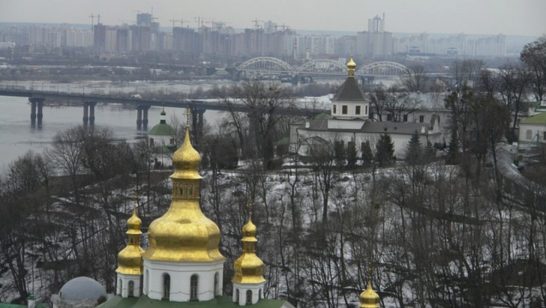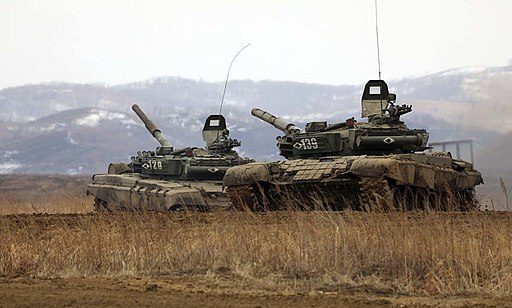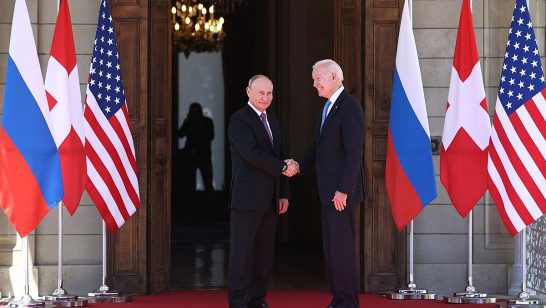
Over the past weeks, the European Leadership Network has convened network members from across wider Europe in a series of private conversations to gain a better understanding of the factors driving the current crisis and the options for its resolution. A key priority is to understand perceptions and preoccupations on both sides, including thoughts on possible ways out of the crisis. This is a summary of some considerations offered by Russian participants during these conversations. As with all our publications, it does not reflect an overall view held by the Network or ELN staff, whose members have diverse views on the current crisis.
We held a parallel focus group with Ukrainian network members which is summarised here.
To convey an important message upfront: Russia seems to look positively on any outcome that falls short of a large-scale war, suggesting that de-escalation is possible. However, much seems to depend on whether the Russian leadership is willing to accept its achievements to date as a perceived victory, or whether the current situation will be prolonged by a belief that relations with NATO require sustained hard-line pressure.
What could be perceived as a victory by the Kremlin?
Russian participants emphasised that from their point of view, one of Russia’s key concerns is to be treated as an equal partner in negotiations about the future of the European security architecture. Many issues have fuelled Moscow’s frustration, including the post-2019 suspension of meetings in the NATO-Russia Council (NRC), as well as the lack of positive Western responses to Russian initiatives such as the Medvedev proposal on a new European security treaty and the proposal on a moratorium on intermediate-range land-based missiles in Europe.
Indeed, Russian interlocutors emphasised that it has only been under the current pressure that two key dialogue platforms have been revitalised. First, the Alliance has agreed to reconvene in the NRC, thereby abandoning NATO’s “no-business-as-usual” policy introduced after the annexation of Crimea. Second, following a Franco-German initiative, the Normandy Four format met on 26 January in Paris. For the Russian leadership, this is a signal that they are taken seriously by the West. Russia has hence achieved at least one of its goals – a seat at the table.
But there is more that Russia’s leadership can claim as a victory at home. China’s recent endorsement of Russia’s opposition to NATO enlargement is another important achievement for the Kremlin.
In terms of legally binding commitments from NATO and the US, Russia will try hard to get something on paper. But even if this proves impossible, it would not necessarily be seen as a failure, participants said. Rather, hardliners in Moscow could use such an outcome to argue that Western countries are unwilling to cooperate. That could, in turn, empower those who advocate for a union with Belarus and the Donbas, thus potentially leading to further conflict.
Russia’s threat perception
Whether Russia can declare victory and draw down forces will depend on Moscow’s perception of a number of external developments, including about NATO’s and Ukraine’s intentions. The uncertainty over Ukrainian President Zelenskiy’s domestic power plays a crucial role here: there are concerns that he might be overruled by hawks in his own ranks, which, from a Russian point of view, makes Ukrainian troop movements towards the Donbas more likely. Intelligence on the Russian side seems to already paint such a scenario. The Ukrainian ground forces – other than their naval and air forces – are considered to be very strong. Therefore, the Russian participants emphasised their view that Western fears that Russia might invade Ukraine are implausible from Moscow’s standpoint. They also noted that in their calculation, more troops would have to be moved to the Western and Southern military districts first to prepare the ground for a successful attack but insisted that there were, in any case, no such plans.
A main aggravating factor in relations with Ukraine is the perceived unwillingness on Kyiv’s part to implement the Minsk Agreement. However, Russian members emphasised that the possibility of Ukraine’s NATO membership, on the other hand, is not the most worrisome scenario; in the short term, Russia is more worried about enhanced military-technical cooperation between NATO and Kyiv. The recently proposed alliance between the UK, Poland and Ukraine is seen as a pretext for such cooperation.
Concerning NATO’s intentions, there are a number of scenarios floating among the Russian leadership, experts, and the public. One of them is the possibility of a US-led coalition intervening in Donbas, potentially including an attack during the Beijing Olympic Games. This concern carries a symbolic dimension: President Saakashvili’s attempted attack on South Ossetia during the 2008 Beijing Olympic Games and the coup to overthrow President Yanukovych during the 2014 Sochi Olympics are seen as possible precedents for another negative event during the Olympic games.
Furthermore, there is speculation in Moscow on whether the Russian-Belarusian military exercises that recently started could be seen as a means to prepare for a scenario in which NATO, acknowledging that it cannot do much to assist Ukraine in case of a conflict in the Donbas, would be willing to engage in “horizontal escalation”, including an attack on Belarus and/or Kaliningrad.
The way forward: De-escalation is not impossible
At this point, there are many ways in which the crisis could develop. The discussions with Russian interlocutors suggested there are hints towards de-escalation rather than a military conflict that all sides seemingly want to avoid. Two key questions are, how far does the Kremlin feel they need to go in an attempt to extract more from the West? And what does Russia think it needs from the US and NATO in response to its security demands? Russian experts said that Moscow purposefully put unrealistic demands on the table as a political tactic. Even so, keeping up – or intensifying – the military pressure might be considered a viable way of bringing the US and NATO to the table on other issues.
There is little room for further military escalation on the Russian side that falls short of provoking a full-scale war. But it seems Moscow has learned during the crisis that more assertive behaviour can have positive outcomes, including raising scepticism among some NATO members regarding NATO enlargement. And more importantly, the crisis has taught Russia that exerting pressure on NATO increases its chances of being taken seriously and getting a seat at the table.
The opinions articulated above represent the views of the author(s) and do not necessarily reflect the position of the European Leadership Network or any of its members. The ELN’s aim is to encourage debates that will help develop Europe’s capacity to address the pressing foreign, defence, and security policy challenges of our time.
Image: Wikimedia commons, W. Bulach



